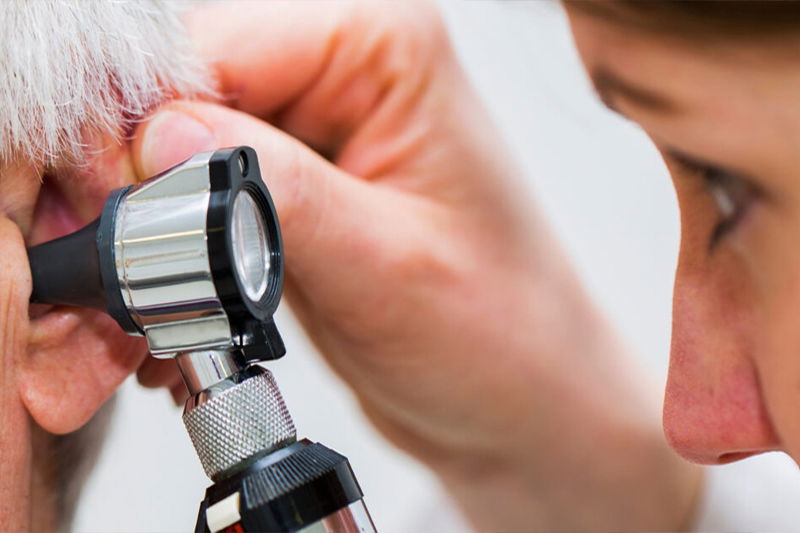Here’s an experiment: look around and notice how many pairs of headphones you see on any given day. You might be in the grocery store, in the gym or out for a late-afternoon stroll along the Truckee River. Wherever life takes you, it’s nearly impossible not to notice that we’ve become a nation of earbud addicts.
This trend begs several obvious questions about whether certain types of headphones are better for you than others and to what degree headphones relate to hearing loss. Let’s start with the ever-growing issue of hearing loss, then do a quick dive into which types of headphones are least harmful to your hearing so you can make the best decisions about protecting your hearing in the long-term.
Hearing Loss and Headphones
First and foremost, headphone usage can absolutely damage your hearing. Much of the problem stems from proximity, duration and volume. In other words, the closer the earphone is to your eardrum – and the louder the music is for a longer time – the more likely you are to experience hearing loss.
Noise-induced hearing loss begins with the eardrum being exposed to an unnaturally loud sound such as a jet engine, a rock concert or extended headphone usage. And it doesn’t take much to damage your hearing. According to the Centers for Disease Control, just three minutes of lawn mowing or one minute at a rock concert can exceed the 100 decibel threshold and cause hearing loss. The rule of thumb is anything over 85 decibels is unsafe for your hearing for any amount of time.
Here’s how it works: when the eardrum vibrates, the hair- and fluid-filled cochlea is impacted and this is where hearing loss actually happens. If the cochlea hairs move around too much, they can lose their ability to sense vibration. Depending on the volume, the cells of the cochlea may or may not be able to recover over time. When they’re unable to recover, the result is permanent hearing loss. We’d love to tell you that this sort of hearing loss can be naturally recovered, but the fact is “permanent” truly means permanent in this case.
For most people, however, it’s not too late to learn about the best ways to prevent hearing loss while still enjoying the music. Here’s a quick look at how to protect your hearing if you’re going to use headphones.
Best (and Worst) Types of Headphones
When Sony introduced the Walkman portable cassette player in 1979, it unleashed a revolution in our ability to enjoy music on a personal level. Remember, music used to be enjoyed via loudspeakers and stereo systems, meaning anyone within a certain vicinity would hear your music when you played it. This radically changed when the personal tape player was released. With this advance in personal tech, people could go for a walk or jog while listening to whatever they pleased. Two decades later, the iPod built on the same idea, with a digital spin. The biggest difference is that the iPod shifted us from a nation of over-the-ear foam headphones to one of plastic earbuds constantly jammed into our ears.
While the wires are quickly vanishing thanks to Bluetooth technology, the attraction to earbud-style headphones remains stronger than ever – just witness the popularity of Apple’s ubiquitous AirPods. This might not be such good news for those looking to protect their hearing, however. In fact, it turns out that those who prefer the older style over-the-ear headphones are on the right track, as long as they keep the volume at a reasonable level. The reason for this is that the foam padding often found in over-the-ear headphones can provide enough distance to prevent the same sort of damage caused when you’ve got an earbud wedged directly into your ear.
Of course, the factors of duration and volume still matter. It’s possible to damage your hearing with over-the-ear headphones if you listen long enough and at a loud enough volume. An ideal solution is to use noise-canceling headphones which drown out ambient sounds (they’re perfect for airplane rides) while allowing you to enjoy your music at a reasonable volume.
The key, it seems, is moderation. If you spend your entire days with earbuds in, you’re much more prone to hearing loss than someone who doesn’t.
Solutions for Hearing Loss
If you suspect you have experienced hearing loss — whether noise induced or from other causes — you should schedule an appointment with us so we can get to the bottom of the issue. If you’re having trouble keeping up with conversations or discerning certain voices, it’s time for a visit. We use specially-designed sound booths and cutting-edge video otoscopes to determine how well you can hear. We’ll discuss whether you need a hearing aid, implants or simply a quick lesson in how to prevent further hearing loss. Learn more at https://www.sierranevadaent.com/ or https://www.sierranevadahac.com/.




